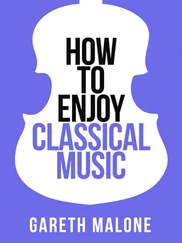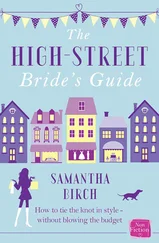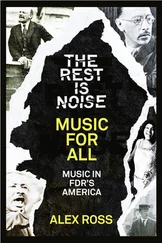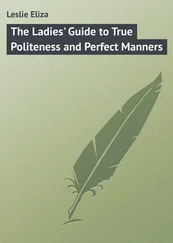Despite music playing second fiddle (pun intended) to the drama, some scores have become well known in their own right, and are written by composers who have made careers out of writing for film and neglecting concert music. The scores for Psycho and Cape Fear by Bernard Hermann, Batman by Danny Elfman, The Great Escape by Elmer Bernstein, Jerry Goldsmith’s stridently modern Planet of the Apes and the many scores of John Williams can compete with music written for the concert platform. Many ‘straight’ or ‘legit’ composers have also been drawn to the world of film, especially in its early days. The 1938 score for Alexander Nevsky by the Russian composer Sergei Prokofiev is a great example of a piece that transcends the constrictions of the genre. In the 1990s the film score was performed in a concert version with the film projected behind the orchestra. This sort of meeting of the film world and the orchestral world is a mark of their mutual respect, although a more cynical view would be that orchestral musicians like film work because it pays well and film directors like orchestras because they elevate banal stories.
Because of the technical demands of film composition it has now become a separate discipline requiring pinpoint timing and an understanding of how music and image combine to create cinema. Too much scoring can overpower a scene; not enough and the scene can lack meaning. For a film score to earn the respect of classical musicians it must stand up to the same scrutiny as concert music which does not have the benefit of a moving image and must hold the audience’s attention on purely musical grounds. But there are examples of pieces that have stood out from the film and had me whistling for weeks after leaving the cinema.
 Action: If you like things dark and moody then Don Davies’s eerie The Matrix from 1999 displays brilliant use of brass and John Powell’s The Bourne Identity has a haunting bassoon solo (a large woodwind instrument) and a much-imitated string pattern or ostinato (short repeated phrase), although Powell’s score does contain synthesisers so it’s unlikely to make it into the concert hall. But how could I leave out the Arnold Schwarzenegger classic Conan the Barbarian by Basil Poledouris from 1982? A more pompous, melodramatic score does not exist – it ripples with pure Hollywood magic; the horns of the orchestra have never worked as hard.
Action: If you like things dark and moody then Don Davies’s eerie The Matrix from 1999 displays brilliant use of brass and John Powell’s The Bourne Identity has a haunting bassoon solo (a large woodwind instrument) and a much-imitated string pattern or ostinato (short repeated phrase), although Powell’s score does contain synthesisers so it’s unlikely to make it into the concert hall. But how could I leave out the Arnold Schwarzenegger classic Conan the Barbarian by Basil Poledouris from 1982? A more pompous, melodramatic score does not exist – it ripples with pure Hollywood magic; the horns of the orchestra have never worked as hard.
 Shakespeare: If you were a student of drama in the 1990s then you must have been transfixed, as I was, by Patrick Doyle’s score for Kenneth Branagh’s film of Henry V , in particular the stirring Non nobis domine sung on the battlefield by the composer himself. 3Listening to this version of the Shakespeare play led me to the discovery of the music from the Olivier film of Henry V from 1944. This was composed by William Walton (1902–1983) whose work has the edge over the younger composer. In fact it ignited a passion for the music of Walton which took in the inimitable choral work Belshazzar’s Feast and culminated with a performance where Sam West recited the text whilst the LSO played the music. Thrilling.
Shakespeare: If you were a student of drama in the 1990s then you must have been transfixed, as I was, by Patrick Doyle’s score for Kenneth Branagh’s film of Henry V , in particular the stirring Non nobis domine sung on the battlefield by the composer himself. 3Listening to this version of the Shakespeare play led me to the discovery of the music from the Olivier film of Henry V from 1944. This was composed by William Walton (1902–1983) whose work has the edge over the younger composer. In fact it ignited a passion for the music of Walton which took in the inimitable choral work Belshazzar’s Feast and culminated with a performance where Sam West recited the text whilst the LSO played the music. Thrilling.
 Sci-fi: Apparently it was LSO principal trumpet Maurice Murphy’s first day at work when the orchestra sat in the world-famous Abbey Road studios to record the music for Star Wars by John Williams. If you don’t know the score to Star Wars it begins with a blistering trumpet line which repeatedly hits the top of the trumpet’s range. Maurice dispatched the part with characteristic brilliance and subsequently played on all six of the Star Wars movies. John Williams is one of my favourite film composers because his knowledge and love of classical music is evident in every score. Homages to the great composers can be heard everywhere: Wagner, Mahler, Strauss and particularly Holst’s The Planets Suite in the case of Star Wars . If you are looking for an easy way into classical music then I suggest getting to know his many soundtracks.
Sci-fi: Apparently it was LSO principal trumpet Maurice Murphy’s first day at work when the orchestra sat in the world-famous Abbey Road studios to record the music for Star Wars by John Williams. If you don’t know the score to Star Wars it begins with a blistering trumpet line which repeatedly hits the top of the trumpet’s range. Maurice dispatched the part with characteristic brilliance and subsequently played on all six of the Star Wars movies. John Williams is one of my favourite film composers because his knowledge and love of classical music is evident in every score. Homages to the great composers can be heard everywhere: Wagner, Mahler, Strauss and particularly Holst’s The Planets Suite in the case of Star Wars . If you are looking for an easy way into classical music then I suggest getting to know his many soundtracks.
I think it’s the emotional scope of an orchestra as well as the fearless playing of individuals such as Maurice Murphy that keeps film directors coming back to this traditional method of scoring a film – even when music technology offers cheaper alternatives: nothing can compete with hearing a full orchestra swell as a film reaches its emotional high point. The influence of film is as important to composers of the twentieth century as literature was in the nineteenth.
There is a commercial drive in film that simply doesn’t exist in the world of ‘art music’. A new commission for an orchestral piece is likely to be funded by philanthropic organisations hoping to encourage composers to innovate. A director who commissions for a film score is often hoping to add box-office numbers. This has in some cases led to what can only be described as flagrant plagiarism with rehashed versions of previously successful scores. It takes a composer of great personality and vision to create something truly original in this commercial environment, and when they do it’s what I call ‘classical’.
Pieces of music that you know but don’t know the title
If you watch television or listen to the radio then you might not know who wrote a piece or where it sits in the pantheon of great composers, but you will recognise it on first hearing. From the soundtrack of the BBC series The Apprentice (which is remarkably varied, featuring not only an atmospheric score by Dru Masters but many classical pieces by composers such as Stravinsky, Satie, and perhaps most famously its theme tune, ‘Dance of the Knights’ from Prokofiev’s Romeo and Juliet ) to the British Airways adverts (‘The Flower Duet’ from Delibes’ Lakmé ) there are countless examples of the plundering of classical music for the benefit of television. Long may it continue.
The following pieces (and those in Appendix I) are those I consider that anybody well versed in this sort of music will most probably have heard. It’s the sort of stuff you’re likely to hear on the radio, in the background on TV or films or played at shopping centres to prevent the local teenagers from loitering. I’m not saying that any of these pieces on their own will change your life but I believe that if you work your way through some of them then you’ll have a sense of the range of classical music that is considered popular. This is first base in your relationship with music and there are at least three more bases to go.
These are the pieces that bring so many people to classical music every year. They get in through the back door on a TV advert and they stick around, bothering you until you find out what they are. That’s when you succumb to the power of advertising and shell out for a ‘best of’ classical CD, and that isn’t a bad starting point because chances are there will be something else on that CD that catches your ear.
Dip into this list. It’s all available on the internet so you can try before you buy. I use a variety of sources to listen to music before settling on a purchase. Sometimes you can get lucky with YouTube; there are, for instance, videos of Glenn Gould playing the piano before his untimely death in 1982 or a very strange-sounding recording of the last castrato (look it up). There’s a brilliant piece of Swedish software called Spotify, though I believe it’s not available outside Europe at the moment. 4It enables you to listen to almost any music for free (periodically you have to suffer some fairly ghastly adverts unless you pay for their premium service). If you are feeling more flush then iTunes and Amazon.co.uk or Amazon.com offer short excerpts to listen to before you download.
Читать дальше
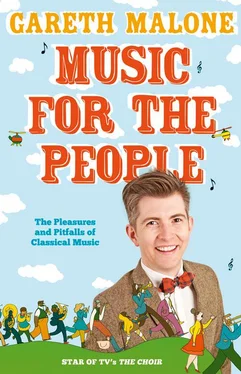
 Action: If you like things dark and moody then Don Davies’s eerie The Matrix from 1999 displays brilliant use of brass and John Powell’s The Bourne Identity has a haunting bassoon solo (a large woodwind instrument) and a much-imitated string pattern or ostinato (short repeated phrase), although Powell’s score does contain synthesisers so it’s unlikely to make it into the concert hall. But how could I leave out the Arnold Schwarzenegger classic Conan the Barbarian by Basil Poledouris from 1982? A more pompous, melodramatic score does not exist – it ripples with pure Hollywood magic; the horns of the orchestra have never worked as hard.
Action: If you like things dark and moody then Don Davies’s eerie The Matrix from 1999 displays brilliant use of brass and John Powell’s The Bourne Identity has a haunting bassoon solo (a large woodwind instrument) and a much-imitated string pattern or ostinato (short repeated phrase), although Powell’s score does contain synthesisers so it’s unlikely to make it into the concert hall. But how could I leave out the Arnold Schwarzenegger classic Conan the Barbarian by Basil Poledouris from 1982? A more pompous, melodramatic score does not exist – it ripples with pure Hollywood magic; the horns of the orchestra have never worked as hard.






